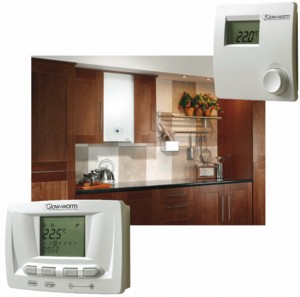The controlled approach to reducing carbon emissions
Intelligent controls can reduce the annual fuel consumption of combi boilers by up to 15%. Owen Mace explains how.All domestic heating systems have a basic control — the simple on/off switch. However, in recent years, and certainly since the advent of high-efficiency boilers onto the mass market, controls have increasingly become more effective in offering the householder greater accuracy in controlling their heating comfort to suit their particular lifestyles. In a step change from the basic control, intelligent controls are designed to work with a specific range of combi boilers and enable the installer to give the end-user some seriously advantageous benefits. Fuel savings End-users are aware that greater control of their heating systems leads to savings on fuel costs. With intelligent controls, these annual fuel savings are currently considered to be up to 15% — a figure that is in the process of being verified by an independent academic study. Given the level of gas prices, this is a powerful argument in favour of all combi boilers having some form of intelligent controls. Intelligent controls use 2-way communication to enable the boiler to operate at near optimum efficiency. They monitor the room temperature and feed this information back to the boiler, together with the room temperature set point. Using this information the boiler then modulates the flow temperature from the maximum setting on the boiler to achieve the desired room temperature in the most efficient and comfortable way. Intelligent controls are also very quick, simple and easy to install. Typically they use low voltage wiring and so are NOT in the realm of Part P of the Building Regulations, so there is no need to notify building control. Only 2-core cables, which are as unobtrusive as a telephone cable. Wireless controls are also available, which use radio frequencies. There is then no need to take up carpets, floor coverings, drill through walls or thread electrical wiring around the room to link to the boiler. All that is required is a simple transmitter attached to the boiler and the control hung on the wall. Intelligent controls simply allow the boiler and the heating system to make a decision on its output to suit demand — and make adjustments accordingly. Intelligent controls give the installer extra siting flexibility and the end user greater control of central heating and hot water, delivering extra efficiencies and fuel economy. Such controls enable the end-user to set different programmes for the heating and/or hot water seven days a week, giving plenty of flexibility to cater for even the most demanding of lifestyles. These controls are designed to be as simple to use as any other digitally-enabled household appliance — an important point for the installer. Many manufacturers make all sorts of instructions, literature and DVDs freely available to guide users through the ease of using controls.
By using both room temperature and setpoint to control the output of combi boilers, intelligent controls can reduce annual fuel consumption by up to 15%.







